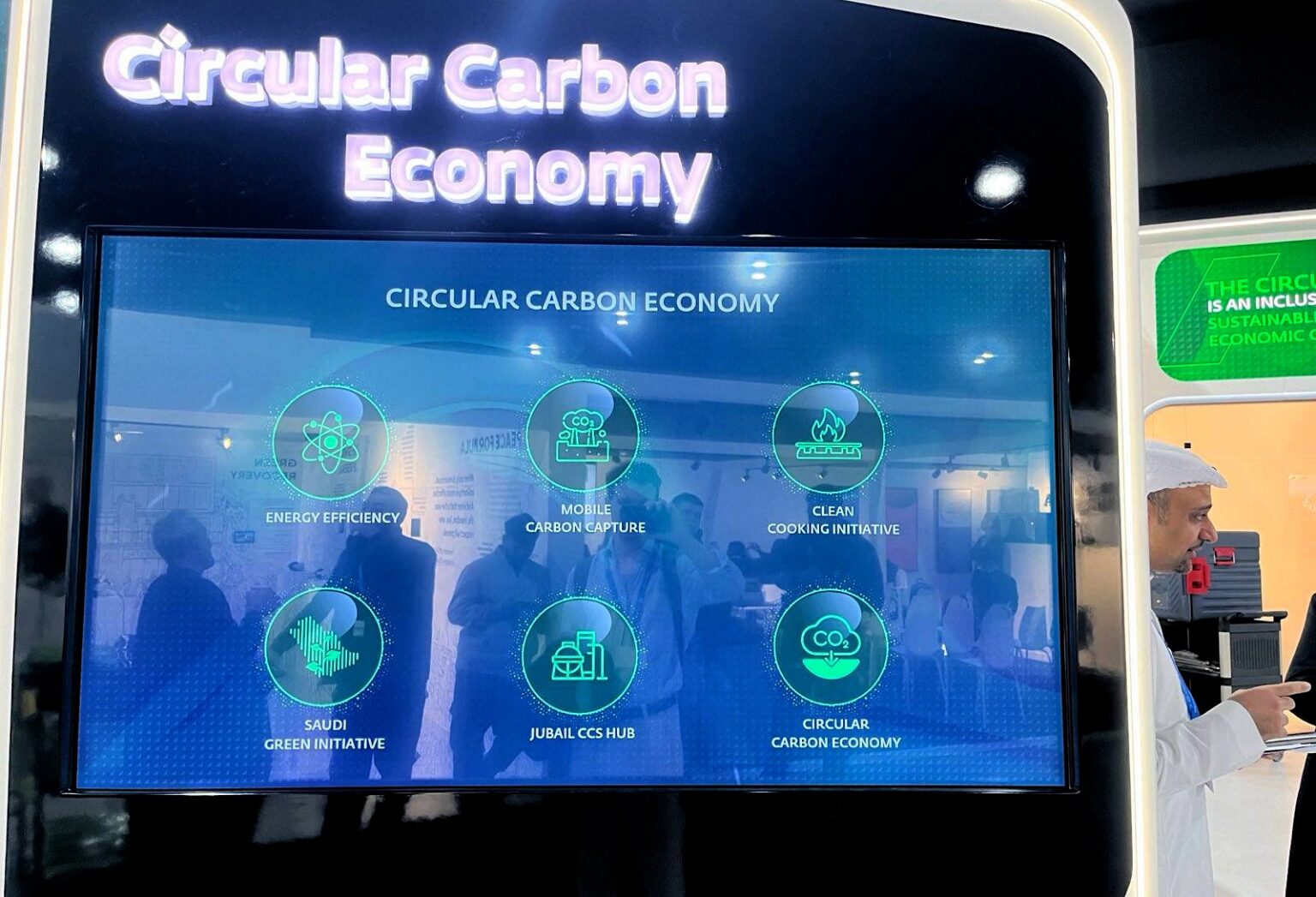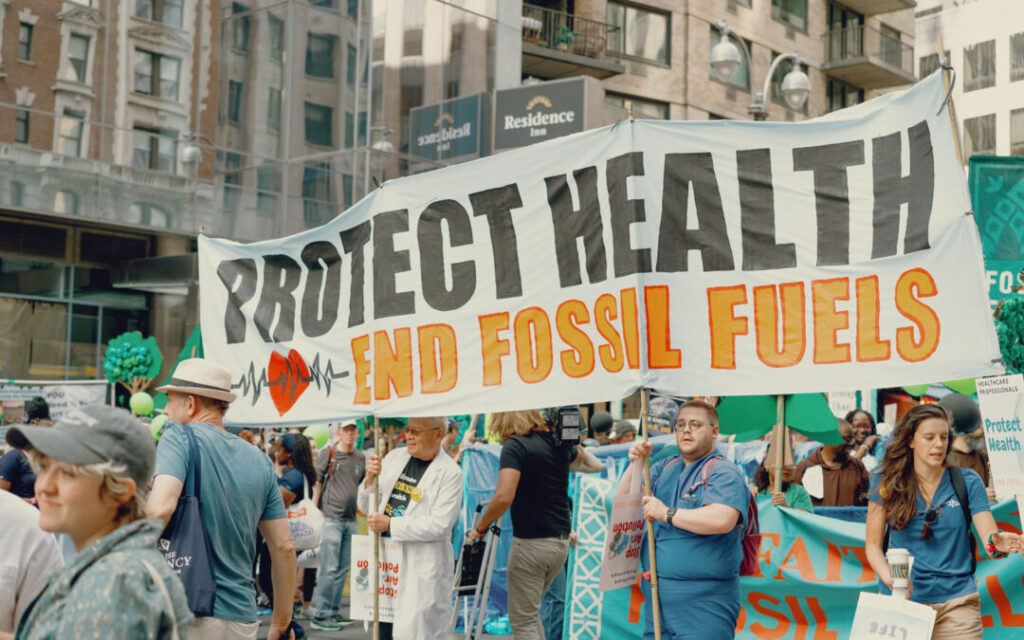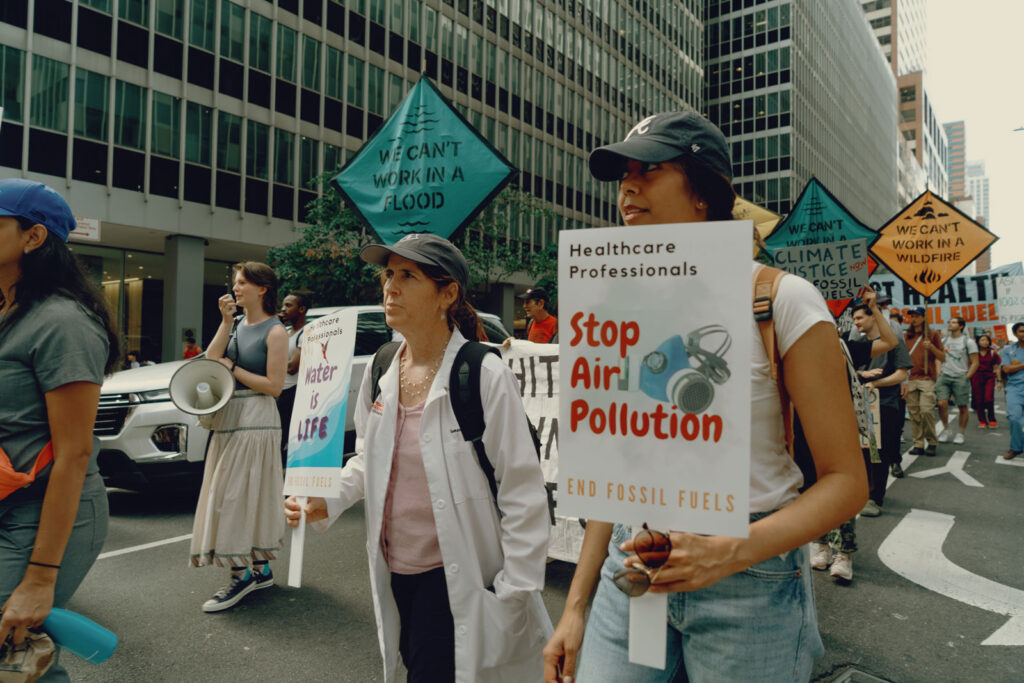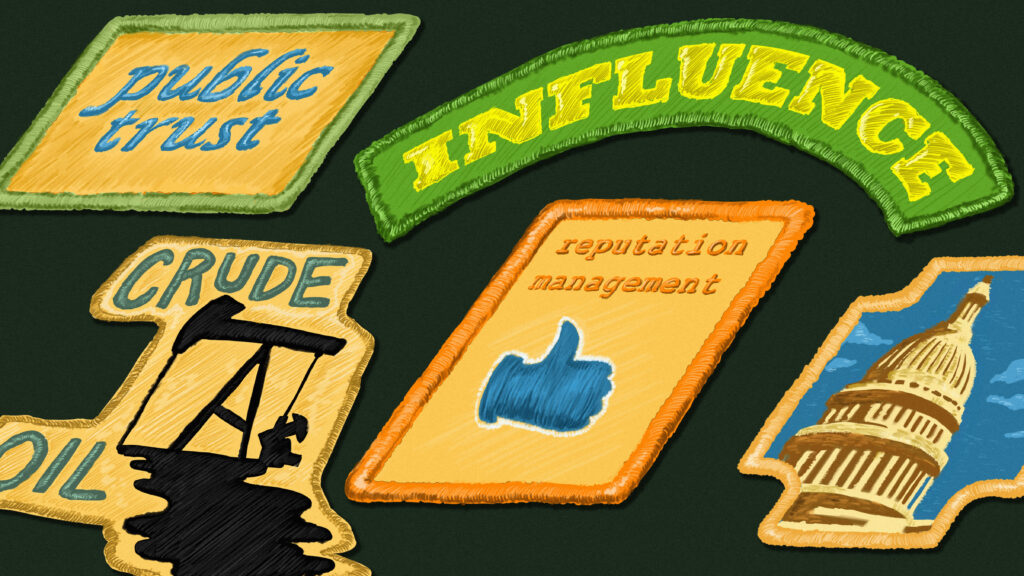More than 1,700 oil, gas and coal lobbyists are registered attendees of this year’s international climate summit, currently underway in Baku, Azerbaijan, to try to persuade the world that the fossil fuel industry can be part of the climate solution.
The PR companies that help them sell that message are not far behind.
Dozens of the consultants registered for the two-week conference, called COP29, come from 10 public relations agencies that work with oil giants such as Saudi Aramco, ExxonMobil, and Shell. The agencies include Edelman, Dentsu, FleishmanHillard, and Burson, according to a DeSmog review of the official delegates list, as well as reports by the PR industry trade press.
Staff from seven of these agencies registered with delegations from countries taking part in the negotiations, including Japan, Brazil, Turkey, and the United Kingdom, as well as the United Arab Emirates, which hosted the last round of the annual negotiations.
Governments often hire PR teams to create content, provide media training, and handle press at high level conferences.
Most of the consultants were listed under each country’s “party overflow”, which gives them access to policymakers, politicians, and business leaders outside the negotiation zone.
Since the start of 2023, these 10 agencies have collectively held at least 91 contracts to burnish the reputations of companies involved in the fossil fuel industry, according to research by DeSmog and Clean Creatives.
Subscribe to our newsletter
Stay up to date with DeSmog news and alerts
It is unclear whether any of the agency employees registered for COP29 have also worked on fossil fuel accounts. At big communications companies, which can employ thousands of staff, only a small number of employees might be working on oil and gas contracts at any one time.
Nevertheless, the proximity of employees from so many fossil-friendly PR firms to the climate negotiations underscores wider concerns about the communications industry’s role in helping to defend the business models of major polluters.
“Any agency with fossil fuel clients at a climate summit is a walking conflict of interest,” said Duncan Meisel, director of Clean Creatives. “Fossil fuel PR agencies show up at events like the COP in order to delay progress by claiming their clients are somehow essential and responsible companies.”
Climate advocates are calling on the advertising and PR industry to stop protecting polluting companies and oil-exporting countries from pressure to decarbonise, often by pushing risky climate solutions like carbon capture, or arguing fossil fuels are necessary for energy security.
In June, United Nations Secretary General Antonio Guterres called for communications agencies to drop their fossil fuel clients, saying oil and gas companies had been “aided and abetted by advertising and PR companies — Mad Men fueling the madness.”
Three months later, Clean Creatives published a report documenting over 1,000 fossil fuel contracts in the PR and advertising industry since the start of 2023.
Oil Producers Hamper Progress
At the Baku conference, Saudi Arabia and allied oil exporters are attempting to block an agreement made at COP28 in Dubai last year to “transition away” from fossil fuels from being included in this year’s final text, according to reporting by news service Earth Negotiations Bulletin.
The Saudi government, which has worked to hinder U.N. climate talks for decades, owns the largest oil company in the world by revenue, Saudi Aramco.
New York-headquartered Burson, one of the PR agencies attending COP29 as part of Turkey’s delegation, has worked for Saudi Aramco at least as recently as 2023, according to research by Clean Creatives. Burson also has 10 other current or recent clients in the fossil fuel sector.
Burson was formed by a merger between Hill & Knowlton and BCW in July, which created the largest PR firm in the world by revenue.
When Egypt, the host of 2022’s climate summit, hired Hill & Knowlton to lead public communications for the conference, over 400 scientists signed an open letter calling for the agency to drop its fossil fuel clients. The letter described Hill & Knowlton’s work for oil giants such as Saudi Aramco and ExxonMobil — clients now retained by Burson — as “incompatible” with spearheading the PR for UN climate negotiations.
Burson is a subsidiary of UK-based WPP, the largest global network of PR and advertising agencies in the world by revenue. WPP’s agencies have collectively held at least 79 fossil fuel contracts since the start of 2023, according to Clean Creatives.
Twenty-two employees from the U.S.-based firm Teneo, which has been hired by the Azeri hosts to work on COP29, were registered as part of the Azeri delegation — the most of any agency in the analysis — along with one in the New Zealand delegation. The most senior registered member of Teneo’s COP29 PR team is Geoff Morrell, a former BP communications chief.
In the run-up to COP29, Teneo conducted an extensive public relations campaign for the Azeri government that portrayed the country as a leader in climate action. The company is in line to earn $5 million for this work, according to documents the company filed with the U.S. Department of Justice under rules requiring American companies to report work for foreign governments.
That task has been complicated by Azerbaijan’s plans to increase oil and gas production. A senior Azeri COP executive was secretly filmed as he appeared to use his role to set up meetings to explore possible fossil fuel deals.
Teneo has worked with at least six oil and gas producers in the past five years, including Chevron and Shell, according to research by DeSmog. The climate plans of both companies, like those of the majority of the fossil fuel industry, are incompatible with the goals of the 2015 Paris Agreement between nations to keep global heating “well below” 2 degrees Celsius (3.6 degrees Fahrenheit) above the historic average, according to a May report by Oil Change International.
Azerbaijan’s delegation also includes six consultants from BTP Advisors, a communications firm that specialises in advising governments with a history of using controversial PR tactics.
In January 2023, an Australian scientist told nonprofit news outlet EUObserver that he had been tricked into promoting “Azerbaijan propaganda” by BTP as the firm sought to buff the country’s image during its conflict with neighbouring Armenia. According to reporting by The European Conservative, BTP confirmed it was working for Azerbaijan, but did not make any further comment on the allegations.
In May, BTP CEO Mark Pursey told AZERTAC, the Azerbaijan state news agency, that hosting COP29 in Baku would be an opportunity for the oil and gas-reliant nation to demonstrate its clean energy capabilities — comments which were later recycled in other state news stories.
Japan’s delegation to the Baku summit includes five representatives from Tokyo-based marketing and public relations conglomerate Dentsu. In the past two years, the firm has held at least 27 contracts with 25 different companies involved in the fossil fuel industry, including ExxonMobil and BP, according to DeSmog research.
One staff member of FleishmanHillard — a global agency headquartered in the U.S. that is owned by holding company Omnicom — registered for the summit as part of Brazil’s national delegation, along with one employee of Brazil-based FSB Comunicação.
According to Clean Creatives, since the start of 2023 FleishmanHillard has worked for oil and gas producer Repsol, oilfield services company SLB, and fossil fuel-reliant utility company Engie. FSB Comunicação works for Brazilian gas distributor Comgás.
Lynn Davidson, a senior director at APCO, a global lobbying firm headquartered in Washington, is registered as a UK delegate. APCO has worked for two oil and gas producers since early 2023, including Tullow Oil, which is headquartered in London and operates in Africa, and an Australian company named Jadestone Energy.
Davidson was previously an advisor to Alok Sharma, the president of the 2021 UN climate summit held in Glasgow, and prior to that worked at Teneo.
Another APCO director, Thomas Billinghurst, is part of the United Arab Emirates’ delegation. Billinghurst created videos and generated news coverage for senior UAE climate envoys in the lead-up to the oil-rich nation’s hosting of COP28 in 2023.
Several global PR firms, including Edelman, Weber Shandwick, and FTI Consulting, are also on the ground in Baku to conduct research rather than as part of country delegations, according to reporting by the trade publication PR Week.
Together, these three firms have collectively held at least 33 fossil fuel contracts in the past two years, according to Clean Creatives, for clients including oil and gas producers and lobby groups such as TotalEnergies, ExxonMobil, and the Asia Natural Gas & Energy Association.
Additional reporting by Kathryn Clare
Subscribe to our newsletter
Stay up to date with DeSmog news and alerts







